Description
Sugar beet fibre:
Sugar beet, cultivated Beta vulgaris, is a plant whose root contains a high concentration of sucrose (as its name suggests). It is grown commercially for sugar production. Sugar beets are related to other B. vulgaris cultivars, such as beetroot and chard.
Sugar beets consist of approximately 75% water, 20% sugar and 5% cell walls. After the sugar is extracted, the remaining cell wall material – the sugar beet pulp – is used to produce the sugar beet fibre.
This source of dietary fibre contains both soluble and insoluble fibres. The main fibre types in sugar beet fibre are insoluble hemicellulose (22-32 %) and soluble pectin (22-29 %), but also smaller amounts of cellulose and lignin. It has a water-holding capacity of 3-4 times its own weight.
Sugar beet fibre contributes to an increase in faecal bulk in two ways: the insoluble components of the fibre increase faecal bulk by absorbing water in the large intestine, while the soluble components are fermented by bacteria in the large intestine leading to an increase in bacterial mass.
Magnesium:
An abundant mineral in the body, magnesium is a cofactor in more than 300 enzyme systems that regulate diverse biochemical reactions in the body. It contributes to a reduction of tiredness and fatigue, electrolyte balance, normal energy-yielding metabolism, normal functioning of the nervous system, normal muscle function, normal protein synthesis, normal psychological function, the maintenance of normal bones and teeth, and it has a role in the process of cell division.
Vitamin C:
Vitamin C contributes to maintaining the normal function of the immune system. It also contributes to normal collagen formation for the normal function of blood vessels, bones, cartilage, gums, skin and teeth, normal energy-yielding metabolism, normal functioning of the nervous system, normal psychological function, protection of cells from oxidative stress, the reduction of tiredness and fatigue, the regeneration of the reduced form of vitamin E and increases iron absorption.
Apple cider vinegar powder:
Apple cider vinegar is fermented juice from crushed apples. It contains some pectin, as well as: vitamins B1, B2, B6 and C; biotin; folic acid; niacin; and pantothenic acid. It also contains enzymes and small amounts of the minerals sodium, phosphorous, potassium, calcium, iron, and magnesium. Apple cider vinegar can also contain significant quantities of acetic acid and citric acid.
Insomnia
One of Routine Magnesium Capsules’ main ingredients is sugar beet fibre. Increasing fibre in a diet can influence the quality of sleep. Studies show that an increase of fibre can put you in phase three sleep which is the deepest form of sleep.
Osteoporosis
Routine Magnesium Capsules are full of magnesium, a mineral that plays an important role in maintaining a healthy skeleton. Magnesium is linked to increasing bone density and helping prevent early-onset osteoporosis.
Headaches
The core ingredient of magnesium in VitaProHealth’s Routine Magnesium Capsules can block signals to the brain that lead to migraines. It can also stop certain chemicals in the brain which causes pain, as well as help blood vessels in the brain to narrow, which may play a part in reducing migraines.
High blood pressure
VitaProHealth’s magnesium capsules help regulate hundreds of body systems, including blood pressure, and muscle and nerve function. We need magnesium to help blood vessels relax and for energy production and bone development. Just like potassium, too much magnesium can be lost in urine due to diuretic use, leading to low magnesium levels.

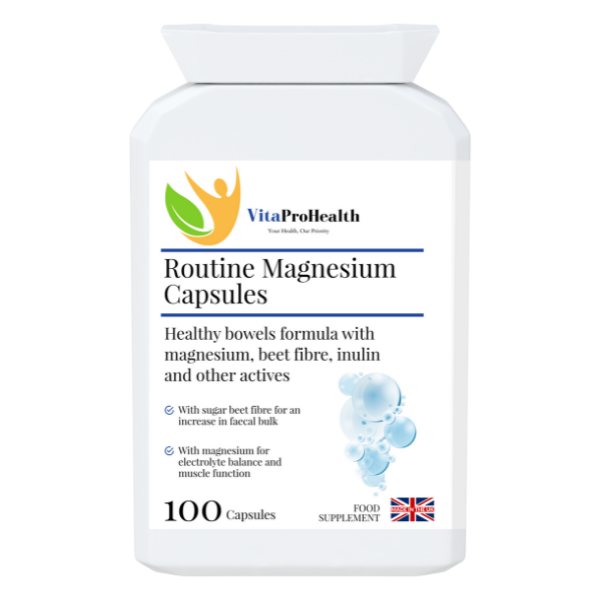
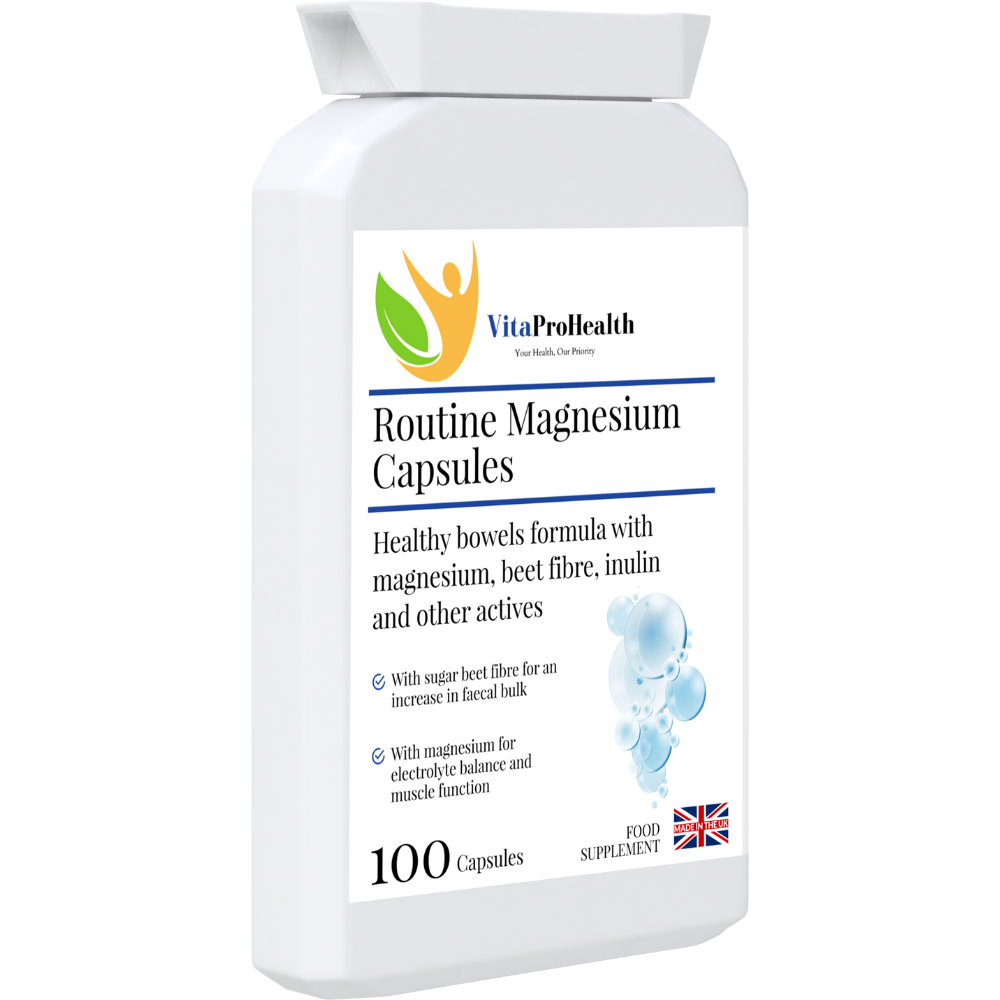

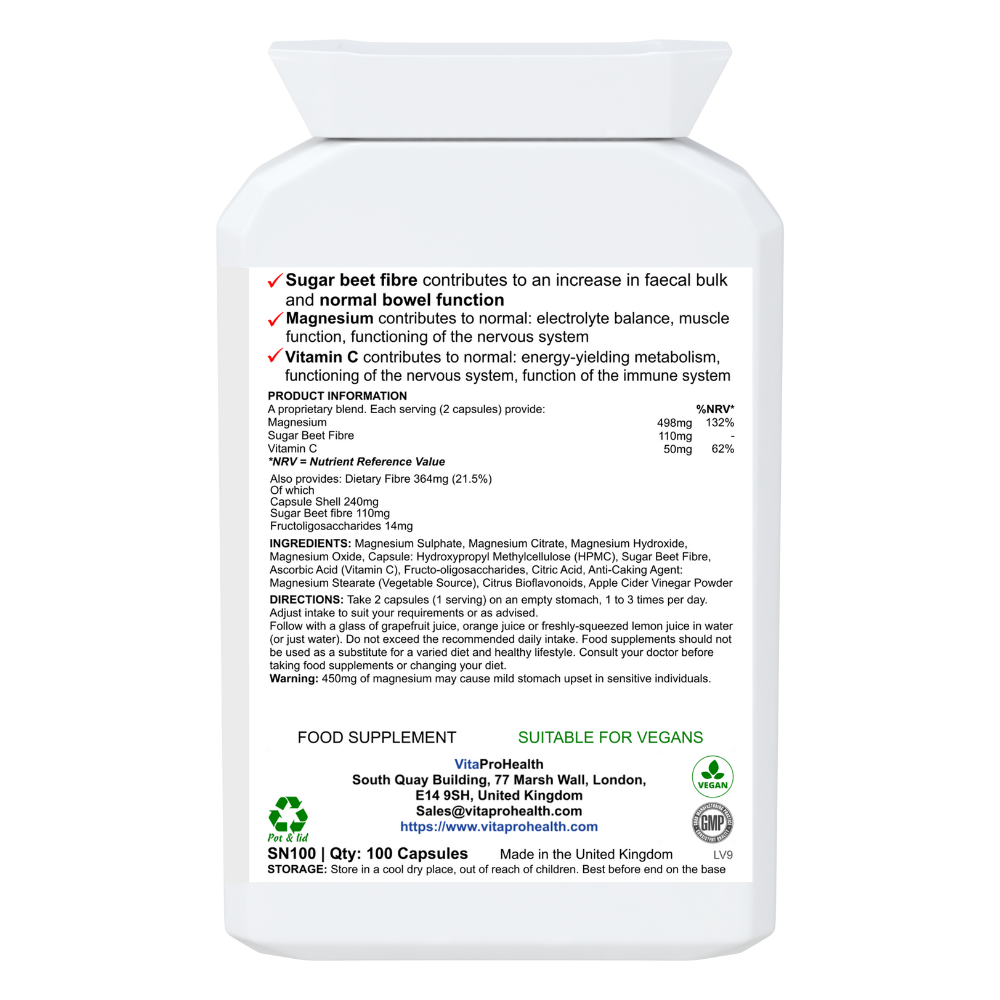
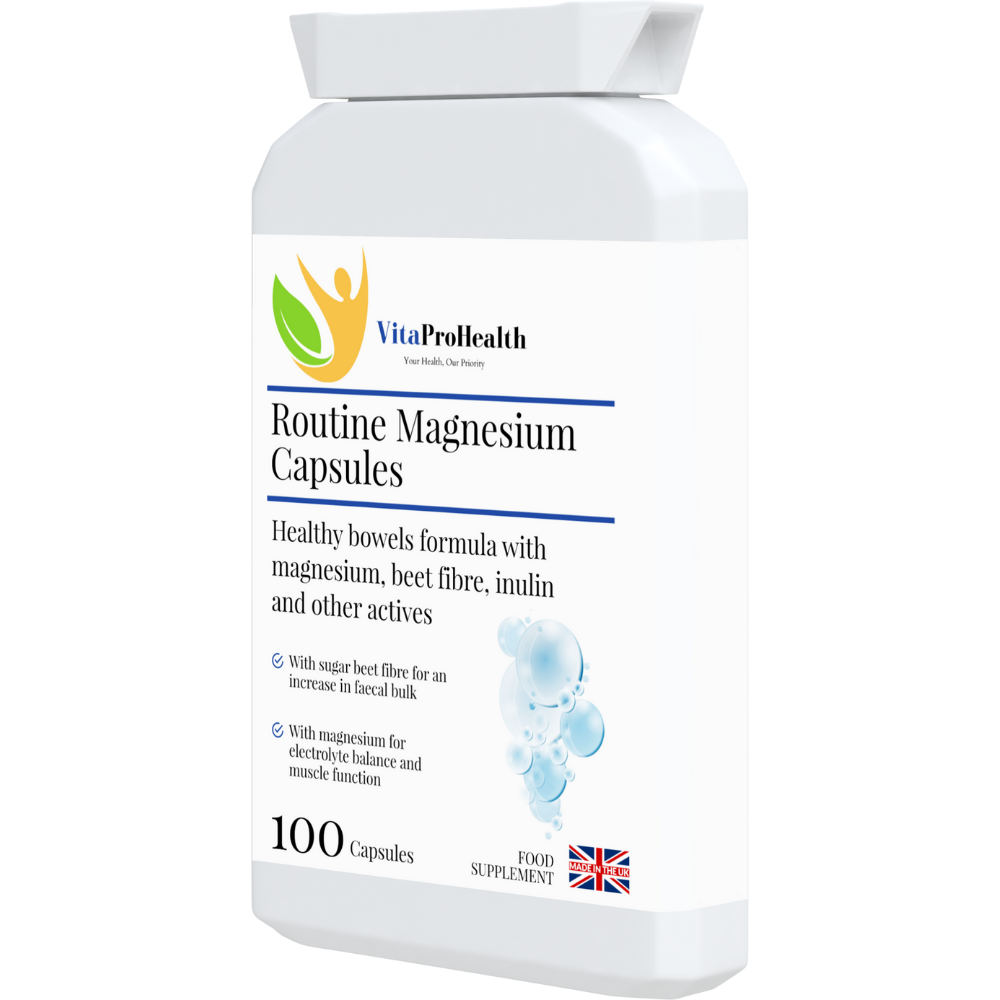
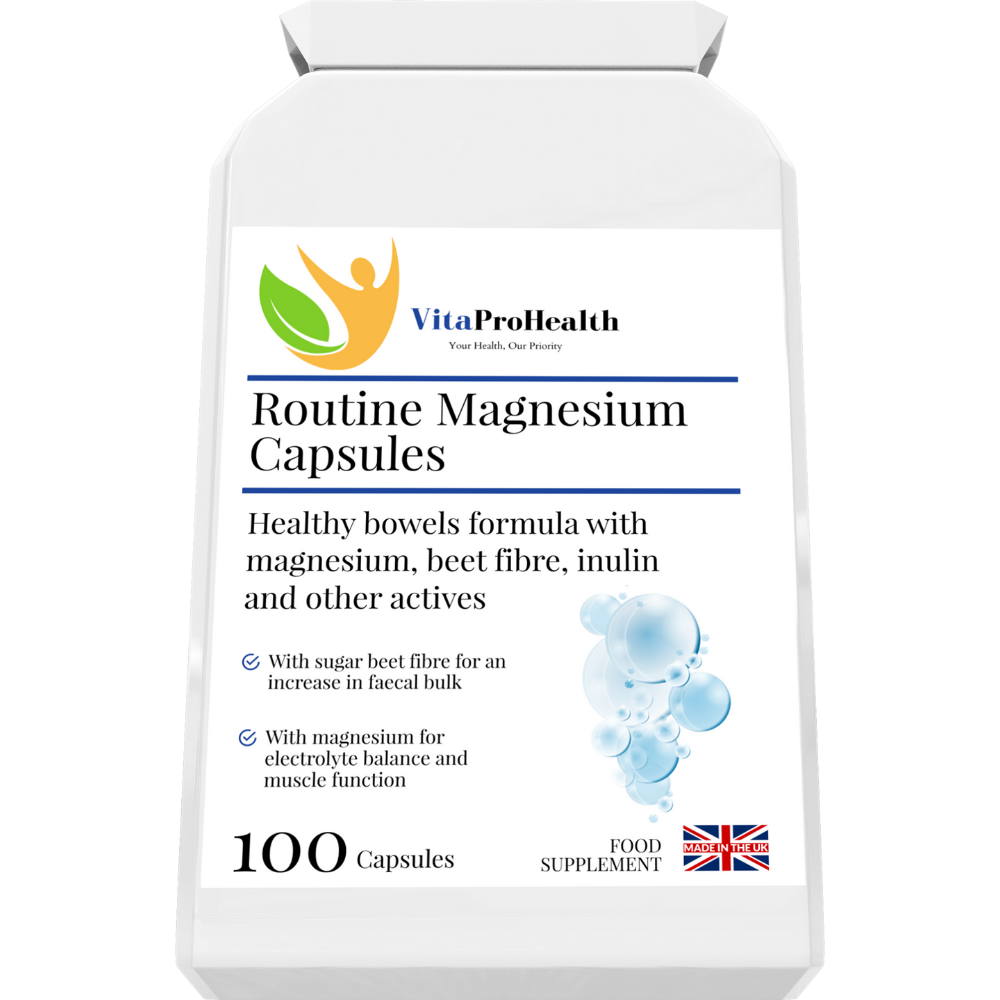
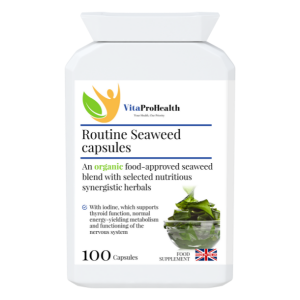
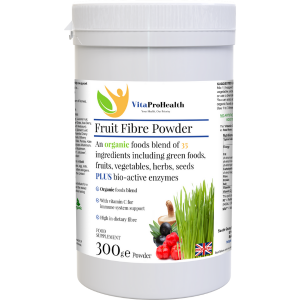
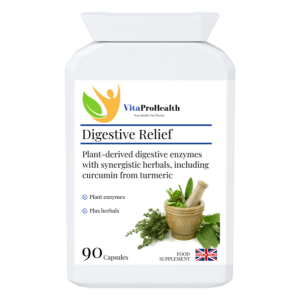
Reviews
There are no reviews yet.